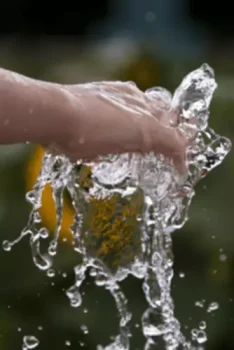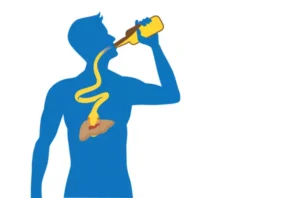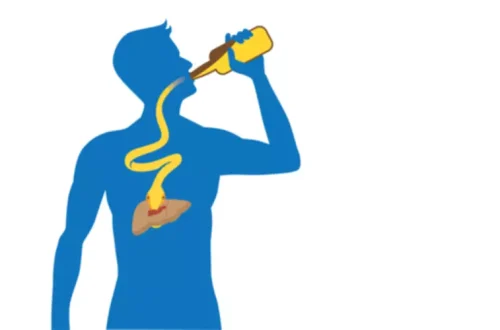
Alcohol affects the levels of specific neurotransmitters in the brain, creating an initial calming effect. This substance acts as a depressant, slowing down the central nervous system and making you feel less inhibited in a variety of settings. Individuals experiencing anxiety might seek temporary relief through alcohol’s depressant effect, which can initially create feelings of relaxation and reduced inhibition. By delving deeper into the mechanisms behind these interactions, individuals can gain insight into how alcohol affects their mental well-being and make informed choices regarding their alcohol consumption habits. If you’re drinking more than the UK low risk drinking guidelines (no more than 14 units a week for both men and women) try to cut down.
- Learn effective strategies to manage the ADHD Wall of Awful and navigate emotional dysregulation.
- One found 35.8% of alcohol-dependent men and 60.7% of women reported anxiety symptoms.
- Mental health experts suggest that while alcohol may initially provide a sense of relief or relaxation, it can exacerbate anxiety symptoms over time.
- Some substances of abuse (e.g., alcohol, stimulants) and medications (e.g., benzodiazepines) can produce obsessive–compulsive behaviors (McKeehan & Martin, 2002; Satel & McDougle, 1991).
- A panic attack is a sudden episode of intense fear accompanied by a variety of physical symptoms despite no apparent danger.
Anxiety Disorders Overview
Fortunately, there are steps you can take to overcome and prevent this scenario. Let’s explore the key information you should know about dealing with an alcohol-induced panic attack. Experiencing anxiety the day after drinking, commonly known as a “hangover anxiety” or “hangxiety,” is a common occurrence for many individuals.
- If you are more prone to these disorders, you may have a more extreme reaction to alcohol withdrawal than someone who does not suffer from panic attacks.
- It’s crucial to gain a proper understanding of how the sympathetic nervous system can sometimes activate false alarms, triggering symptoms of a panic attack.
- “Blacking out,” or experiencing mild to complete memory loss after heavy drinking, can also occur.
- Panic attacks are intense episodes of fear and anxiety that trigger not only cognitive and emotional symptoms but also physical reactions.
Living with Schizophrenia: Insights, Challenges, and Support

Even reducing how much you drink can make a big difference in how you feel. If you’ve ever stopped drinking after a period of heavy use, you might have experienced withdrawal. This happens because your brain has become used to the presence of alcohol. When you stop, your nervous system goes into overdrive, which can set off panic attacks and other unpleasant symptoms. Many individuals with anxiety disorders may turn to alcohol as a means of self-medication, seeking temporary relief from their symptoms. However, this pattern of alcohol use can ultimately exacerbate anxiety and lead to the development of alcohol dependence =https://ecosoberhouse.com/ or alcohol use disorder (AUD).

Evidence-based Treatments
Because of this, a person will hold on to fear-inducing associations longer and alcohol and panic attacks will have a harder time recovering from trauma. This is sometimes called “hangxiety.” If you’re struggling with alcohol withdrawal, please reach out to a healthcare professional. While the symptoms of a panic attack after drinking alcohol can mimic a regular panic attack, there are some key differences.
How are alcohol and anxiety related?
When you experience alcohol-induced panic attacks, this cycle can become even more frightening and potentially result in a long-term panic disorder. Drinking alcohol causes a number of immediate effects in your body – your heart rate may increase, your blood sugar drops and you may eventually become dehydrated. If you are sensitive to the effects of alcohol, these uncomfortable sensations can trigger a panic attack. If you are not struggling with alcohol addiction, cutting out drinking is more of a personal choice. Hypersensitivity is when a person is so sensitive to changes in their body that they can’t help but notice and be affected by them. Every day most of us experience minor aches, pains, heart rhythm changes, and so on.

- However, you may want to cut back completely if alcohol is impacting your mental well-being through regular panic attacks.
- One of the most effective ways to stop panic attacks after drinking is to cut back on alcohol or stop altogether.
- A balanced diet helps regulate mood and anxiety levels when consuming alcohol.
- We do not offer specific health advice, nor are we a remote clinical advice service (RCA).
Because most evidence suggests that simple phobia has no specific relationship to SUDs, this disorder is not discussed. At this type of clinic you will undergo detox (if needed) and engage with a therapist who will listen to you and help you develop the skills you need to Halfway house stay sober. An intensive treatment programme will also include educational presentations delivered by therapists, access to a fitness programme, and complementary therapies such as equine therapy. A continuing-care plan is essential to mitigate the risk of relapse. A skilled therapist will assess your anxiety levels and panic attacks and be able to create a treatment plan that addresses these issues. If severe anxiety or panic attacks are a problem for you, make sure you get proper nutrition and exercise.

How Anxiety and Alcohol Feed into Each Other
- From 2019 to 2021, the percentage of Americans receiving some form of therapy rose from 19.2% to 21.6% (according to data from…
- If blackouts are involved, the extra stress of the unknown, especially if poor judgement was involved, can increase anxiety levels further.
- Please review the linked description of alcohol use disorder, and if you need help, review this link for treatments and resources.
- They can properly assess the severity of your case and recommend an appropriate treatment plan, which may be medication, cognitive behavioral therapy, or a combination of the two.
- As the sedative effect of alcohol wears off, you may experience a spike of anxiety or panic as your body begins to withdraw from the substance.
- In that case, our medical professionals and psychiatrists are likely to suggest that this could signify a psychological dependency on drink.
When your body is already experiencing discomfort, it becomes easier for anxious thoughts and sensations to take hold. As previously discussed, benzodiazepines are generally avoided in individuals with SUDs. If your panic attacks are alcohol-related, you should also re-examine your drinking patterns and consider cutting down on your drinking. If you can’t cut down on drinking despite recurring panic attacks or anxiety hangovers, then it would be a good idea to look into getting help. Because alcohol affects GABA, an inhibiting neurotransmitter in the brain, it does make a person feel calmer at first. However, when the alcohol wears off, GABA levels decrease, triggering an anxious, exaggerated, and overstimulated state.